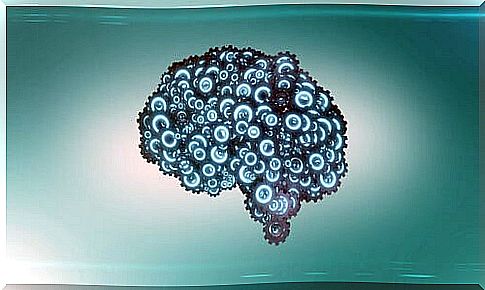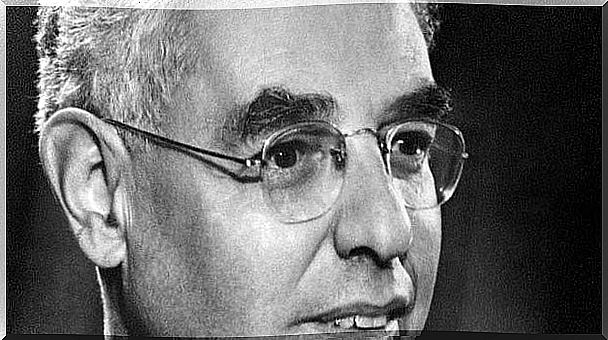The 6 Best Phrases Of Alexander Luria

Born in 1902 in Kazan (Russia), he is considered the father of modern neuropsychology. His research has become the foundation on which this fundamental branch of psychology rests, for which the brain is the source of behavior. With the following phrases by Alexander Luria we approach his autobiography and his main contributions.
Luria grew up in a wealthy Jewish family that attached great importance to multilingualism. He and his sister were fluent in German, French, and English, in addition to their maternal Russian. This author participated in more than 300 scientific publications, among which the Cortical functions of man, Brain and psychological process, Man and his conflictive world, Cognitive development or Neuropsychology of memory stood out .
Multicultural education, multidisciplinary training
Luria’s academic history is curious to say the least. The outbreak of the Russian Revolution interrupted his training, when he was only 7 years old. Influenced by the figure of his father, a famous professor and gastroenterologist, he entered the university to study when he was only 16 years old. The following sentence belongs to his autobiographical work Looking back , from 1979. It is a reflection on the precociousness of his interest in the mind and psychology.

Luria’s flexible hierarchy
Far from considering the mind as fragmented, Luria and his teacher Lev Vygotsky consider the brain as a whole in which associations between its parts prevailed and in which brain functions are not isolated or housed in specific and stagnant regions. These ideas are radically contrary to those of other important researchers, such as Paul Broca or Karl Wernicke, who were in favor of locating certain functions in specific areas.
The localization-anti-localization debate lasted decades. Today, a merged option of both positions is accepted : the brain works as an interrelated system, but it is also possible to identify certain parts as in charge of certain processes. For example, Broca’s area could be directly associated with the production of language. Another of Alexander Luria’s phrases that perfectly sums up the passion he felt for brain function is the following:
For this neuropsychologist, the brain is organized in 3 levels: primary, secondary and tertiary. In each one there are regions that, through a system of neural connections, are in charge of certain functions:
- Wake, primary memory, and internal homeostasis: brain stem, hypothalamus, and limbic system.
- Information storage and processing: temporal, occipital and parietal lobe.
- Mobility and behavioral programming: frontal lobe.
Together, these three levels make up an interconnected functional system. In it, the higher functions depend on many brain areas and work in a coordinated way.

Lesions in Neuropsychology
Unlike physiology, neuropsychology does not provoke or cause injury for experimental purposes. Instead, it takes advantage of existing lesions in patients or those that have already produced surgeries for therapeutic purposes. This limitation of sample and cases is illustrated in one of Alexander Luria’s most famous phrases:
The contributions of the Russian doctor are not only focused on those people with acquired damage and their interest in the cerebral organization of mental processes. He also designed one of the first lie detectors. In addition, his first studies were dedicated to the psychophysiology of work. He was very interested in psychoanalysis and investigated human affective states for the development of methods of “conjugated motor responses.”
This syllogism has been one of the most famous of this author. Alexander formulated it during one of his visits to an indigenous population in Central Asia. Its objective was to know the existence of a universal logical reasoning. For the most curious… The response of these inhabitants, in general terms, was: “How am I going to know? Why don’t you ask my neighbor yourself?

The brain remains an enigma
However, as this neuropsychologist ventured decades ago, the knowledge that we have of the brain today is relatively small when compared with what we still have to discover and very large when compared with what we knew only a few years ago. The truth is that much remains to be investigated, despite the progress and great advances that are being made. One of Alexander Luria’s phrases that reflects this is the following:
Of course, through the phrases of Alexander Luria, many later authors have been able to resume his legacy and delve into more specific aspects, such as the neuropsychological foundations of reason. Thus, the contributions of this author have been decisive for the development of neuropsychology and have allowed a better understanding of the functioning of the brain and the location of the brain.









